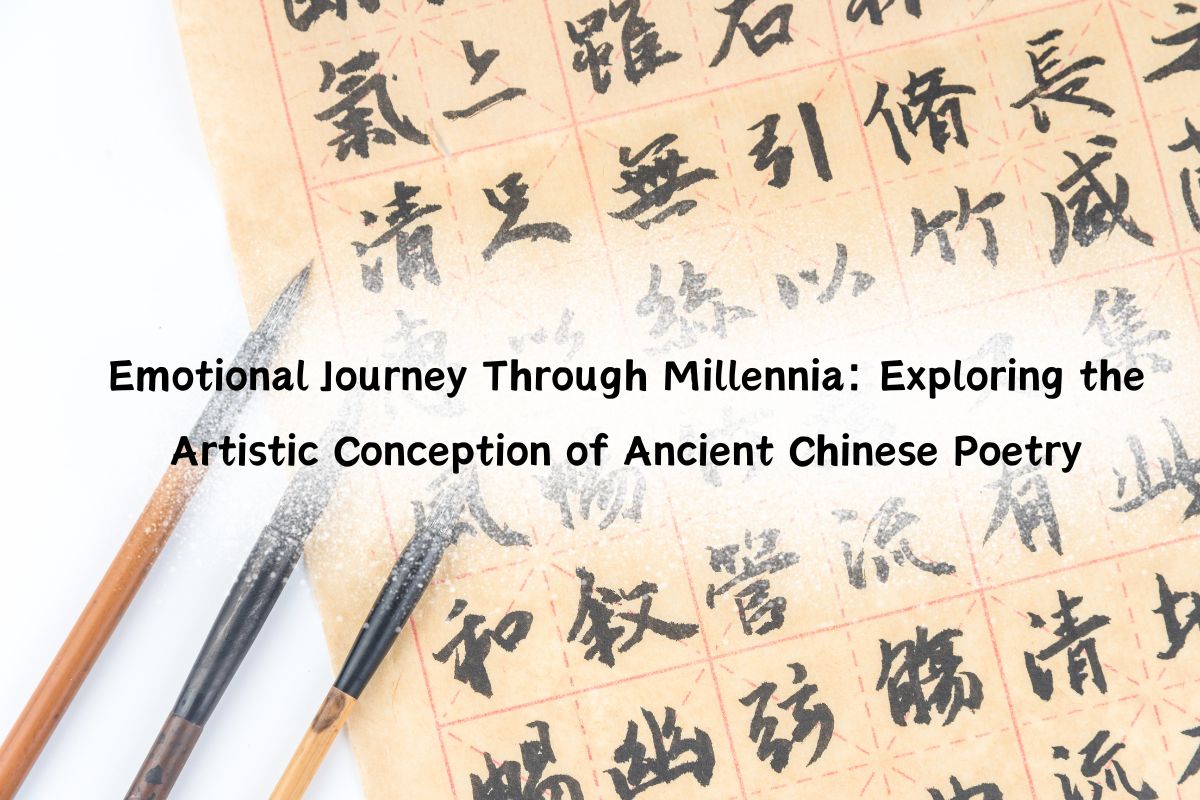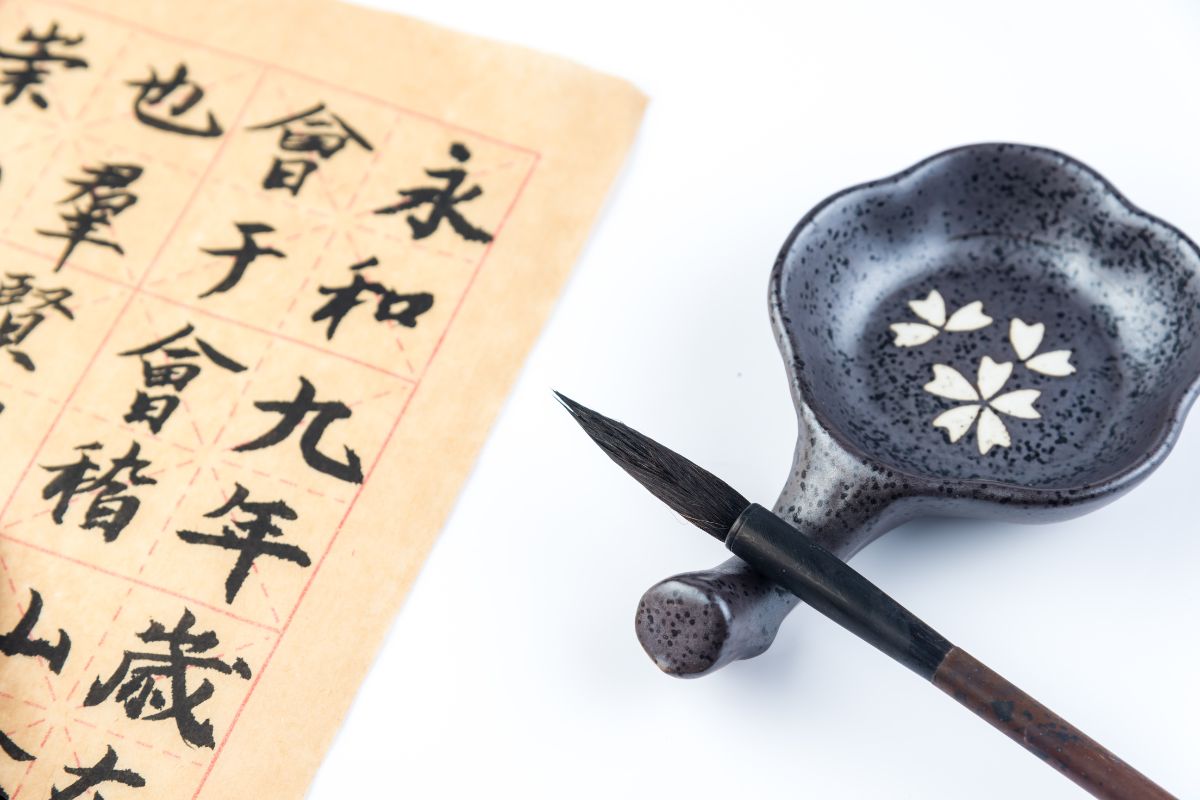Emotional Journey Through Millennia: Exploring the Artistic Conception of Ancient Chinese Poetry
Are you familiar with Chinese ancient poetry? Understanding ancient poetry is like entering a world full of imagery and emotions. With just a few lines, ancient poems can sing beautiful melodies, paint captivating scenery, and narrate the stories within the poet's heart. Imagine bright moonlight, majestic landscapes, or ancient cities worn by time - these ordinary things, under the poet's pen, possess a different kind of enchantment that never fails to resonate with the readers. Do you want to delve deeper? This article will introduce you to more!

Scroll of Mountains and Waters: Sanctuary of Natural Emotions
The realm of mountains and waters, as a frequently depicted spiritual landscape in ancient poetry, is not merely an intuitive portrayal of majestic mountains and murmuring waters. It carries a deeper layer of the poets' endless love for nature and idealized dreams of seclusion. Wang Wei's "After a new rain on a deserted mountain, the weather becomes autumn in the evening" artfully creates a refreshing and tranquil atmosphere post a rain in early autumn, allowing readers to breathe in the pure air of mountains and experience the poet's remote yearning for peace.

Pastoral Poetry: Ode to Simplicity and Harmony和谐(hé xié)
和谐 (hé xié), noun, harmony
Examples:
- The music concert was a perfect display of harmony.
音乐会是和谐的完美展示。
yīn yuè huì shì hé xié de wán měi zhǎn shì。 - In a peaceful garden, one can feel the harmony of nature.
在宁静的花园中,人们可以感受到大自然的和谐。
zài níng jìng de huā yuán zhōng, rén men kě yǐ gǎn shòu dào dà zì rán de hé xié。
Pastoral poems lead us into tranquil scenes of village fields and cottages, where every blade of grass, every tree, every morning light, and dusk hold the praise of the beauty of simple life. Meng Haoran's line, "Green trees by the village merge, beyond the blue hills, walls slant," not only sketches a rural landscape but also encapsulates the poet's sincere desire to escape the hustle and bustle, yearning for inner peace, evoking a sense of longing in the heart.

Feelings of Separation: Binding Distances and Time
The recurring theme of separation in ancient poetry, through the intertwining of delicate scenes and genuine emotions, narrates stories of people who, despite distances and time, remain steadfast in their feelings. Li Bai's "Alone, the sail vanishes, the blue sky ends; only the river flows toward the horizon” not only portrays a visual departure but also conveys a deep sense of reluctance at the soul level. This depiction touches the hearts of countless readers, transcending space and time, resonating to this day.
Moonlit Thoughts: Resonance under a Luminous Moon
The image of a moonlit night in ancient poetry古诗() often symbolizes sentiments of longing and nostalgia, mirroring the coldness and loneliness akin to the endless yearning deep within the poet's heart. Du Fu's "Dew glistens now, the moonlight reveals my hometown" subtly intertwines natural phenomena with personal sentiments. Each glimmer of moonlight seems to express an endless yearning for dear ones afar, creating a tranquil yet profound emotional atmosphere.

古诗 (gǔ shī), noun, poetry
Examples:
- She recited a beautiful ancient poem.
她背诵了一首美丽的古诗。
tā bèi sòng le yī shǒu měi lì de gǔ shī。 - The teacher explained the meaning behind the poetry.
老师解释了古诗背后的含义。
lǎo shī jiě shì le gǔ shī bèi hòu de hán yì。
Seasonal Cycle: Expressing Philosophies of Life
The succession of seasons in ancient poetry transcends mere depictions of natural landscapes, becoming a medium for poets to express profound reflections on the flow of life and the fleeting nature of time. Du Mu's "In Qingming season, the rain falls incessantly, travelers on the road are desolate" not only describes the drizzle of spring and the desolation of travelers but also deeply touches upon contemplations of life's fragility and the transience of worldly affairs.

Echoes of History: Cultural Memory and Reflection
Through reminiscences of ancient relics and past heroes, the historical vicissitudes expressed in ancient poetry reflect the poets' nostalgic memories of past glories and contemplation on the changes of the world, showcasing their profound understanding and commitment to historical culture. Liu Yuxi's "By the side of Zhuque Bridge, wildflowers bloom, at the end of Wuyi Alley, the setting sun slants" not only portrays scenes but also reflects on the historical smoke and mirrors, evoking resonance in ancient tales under that setting sun.